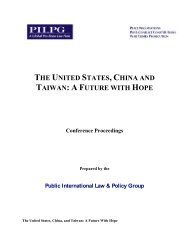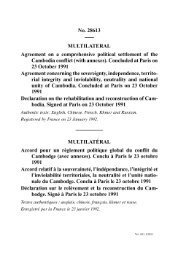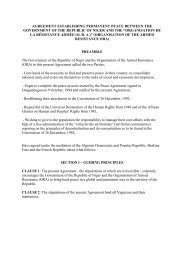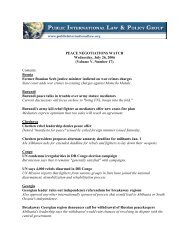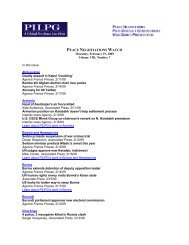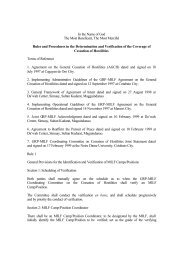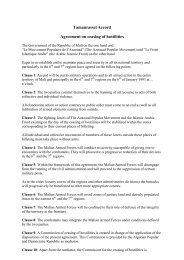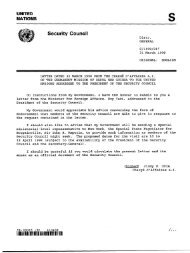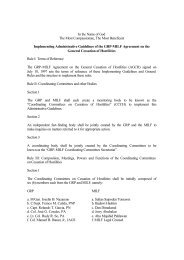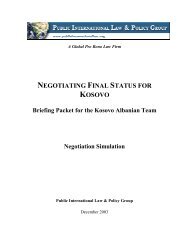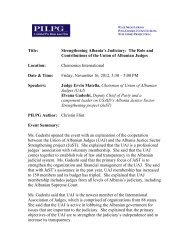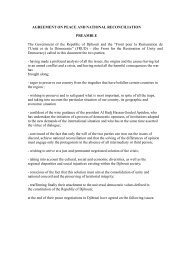You also want an ePaper? Increase the reach of your titles
YUMPU automatically turns print PDFs into web optimized ePapers that Google loves.
9<br />
president beyond the limited and largely ceremonial functions provided in the<br />
Constitutional Framework.<br />
A doctor and a member of the LDK in the 1990s, Rexhipi treated KLA wounded in the<br />
mountains during the 1999 war and after the conflict emerged as the first mayor of the<br />
divided city of Mitrovica. Although Rexhipi joined the PDK, he had the respect of all<br />
Albanian factions in the city and, under the auspices of former U.S. Mitrovica<br />
Administrator William Nash held several meetings with the then Serb leader of the north,<br />
Oliver Ivanovic.<br />
In a meeting with me before he was appointed Prime Minister, Rexhipi generally hewed<br />
to the PDK line but also demonstrated a willingness to discuss all sides of an issue in a<br />
generally straight-forward fashion. He blamed Rugova for the government crisis but also<br />
predicted that Thaci would be willing to withdraw as a Prime Minister candidate if<br />
necessary. He thought that the PDK would be able to work with a part of the LDK and<br />
with Bukoshi's new party. Rexhipi also acknowledged honestly that the PDK itself was<br />
far from united, with what he described as 20 to 30 percent of the party skeptical of<br />
Thaci's leadership.<br />
Rexhipi was bitter about the international mission's role in Mitrovica—claiming (with<br />
good reason) that it had done nothing to resolve the city's divided status. He said that<br />
Kosovo Albanians would never accept the partition of Kosovo, which he believed was<br />
the clear aim of most of the Mitrovica Serb leadership, and he also opposed Ivanovic's<br />
idea of a separate (Serb-controlled) municipality in northern Mitrovica.<br />
Future Status<br />
Neither the fall of Milosevic in Belgrade nor the prolonged government crisis in Kosovo<br />
caused any change in the virtually unanimous support among Kosovo Albanians for full<br />
independence as their future goal. Few Kosovo Albanians I spoke to—whether political<br />
leaders or man in the street—thought Kosovo should seek independence immediately—in<br />
part because they fear this could lead to an international departure from Kosovo.<br />
There were two broad views among Kosovo Albanians about getting to independence.<br />
One view—espoused by Rugova and Haradinaj among others—was that it would be<br />
important to begin to map out a process for achieving independence relatively soon after<br />
the governmental crisis was resolved and as Kosovo begins to create self-governing<br />
institutions. A second view—held by Thaci and others—was that the current situation<br />
amounted to de facto independence and that in view of the current international mood it<br />
would be better to postpone discussion of final status until some indefinite point in the<br />
future.<br />
Rugova and others in the LDK mapped out for me a relatively hard-line position on<br />
independence and status. (All who have dealt with Rugova over the years understand<br />
that although he is a genuine man of peace and a moderate on tactics he is absolutely<br />
uncompromising on independence as the only acceptable final outcome for Kosovo.)



